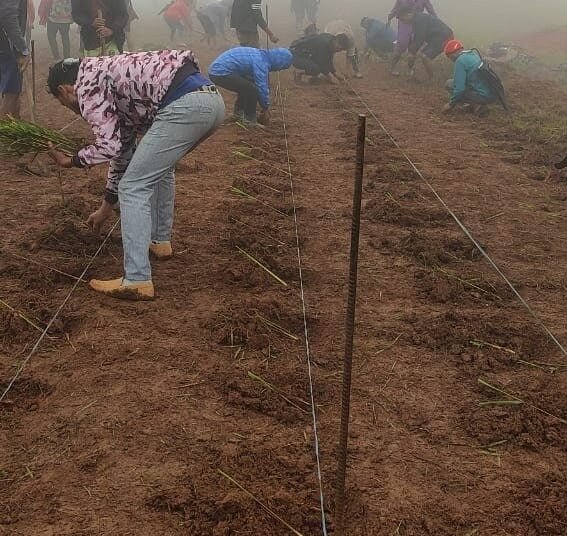As part of World Environment Day, the Institute of Natural Resources (INR) Meghalaya yesterday held a programme at Narwan village, East Jaintia Hills.
Villagers planted citronella, a type of lemongrass, which yields an essential oil used in perfumes, soaps, incense, etc.
Speaking as the chief guest on the occasion, Forests and Environment Minister James PK Sangma said that the project is well thought out and sustainable.
“The fact that citronella grasses improve soil quality, reduce soil acidity, have medicinal qualities and are in huge demand will encourage people to take up citronella plantation as an alternative means of livelihood,” he said.
Stating that this can be turned into a sustainable model, Sangma said that the steps taken today can bear fruit in the future and one day rural people will be able to have sound futures and secure livelihoods.
INR scientist Gunanka DB stressed on the importance of the citronella plantation in the area as the land has been adversely affected by coal mining, with the soil losing fertility and becoming acidic.
He said that citronella and other aromatic grasses that have deep root systems can improve the PH levels of the soil. It will take six or more cycles of citronella plantation before the PH levels are returned to normal, however, so he urged patience and steadfastness on the part of the villagers.
Meanwhile, the Waheh Shnong of Narwan, Lamsuk Langstang, submitted a memorandum to Sangma apprising him of the adverse effect of the presence of coke factories in the region, especially with regards to the impact they have on the cultivation of mandarin oranges.

























